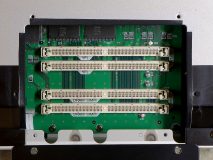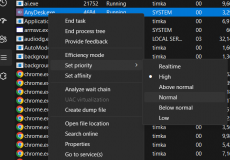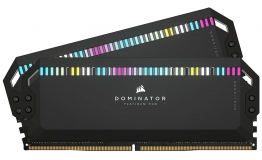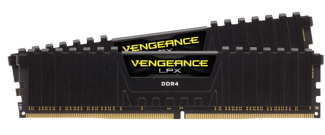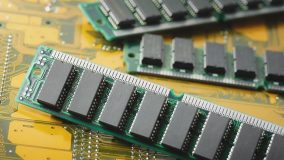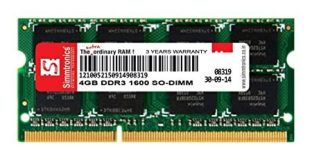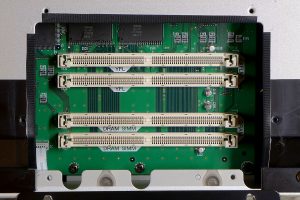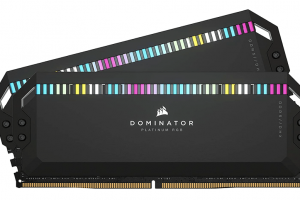Overclocking is one of the best means to improve the performance of your computer. There are several ways to overclock your computer. You can overclock the CPU, RAM, or even GPU. In today’s post, we will be discussing if you can overclock RAM without BIOS.
Technically speaking, you can overclock RAM without BIOS. You can simply make use of other tools such as XMP. You will need to alter the voltage and frequency to overclock it. But, ensure that you have enough experience in tweaking the settings to avoid any issues or damage to your system.
How to Overclock RAM Without BIOS?
Overclocking refers to increasing the clock or speed of a component and making it work at a faster speed. That way, the component will be performing more operations per second. It would involve increasing the speed or frequency of the component. This drastically increases the speed of your computer.
To overclock the RAM without BIOS, you can make use of other overclocking software tools such as Cam NZXT or XMP. These tools provide you with better access to tweaking the clock speed for the RAM. Just ensure that you have the relevant experience to avoid ending up with a damaged RAM or any other component.
Overclocking RAM without BIOS is simple. You need to use a few tools and modify the frequency and voltage. You will also require an unlocked multiplier for the purpose.
Here are the steps involved in how to overclock RAM with ease
Step 1: Check Your Current RAM Speed
- Launch the Task Manager and click on the Performance tab.
- Go to Memory section
- You should be able to find the clock speed of your RAM at the bottom
Step 2: Back Up Your Data
- Back up all your data if something untoward happens, you will be able to retrieve all your data.
Step 3: Overclock Your RAM
- Increase the voltage of your RAM. You can increase the memory controller voltage. This is referred to as VTT or DRAM voltage
- Go to your Motherboard menu and go to Advanced CPU configuration. The setting may also be named as Memory Voltage Control. Make the necessary changes.
- Change the timings for the RAM module. This is known as CAS latency as well.
- The next step is to increase the frequency of the RAM. To do this, you will need to download additional software such as XMP.
Why Should You Overclock RAM?
The process of overclocking the RAM is comparatively easier than overclocking the other components such s the processor. You will also be able to unlock a few hidden features on your motherboard.
Overclocking as such may be a tough task, but the process involved in overclocking the RAM is a little easier. Overclocking TRAM ensures better speeds and better performance. Overclocking provides you an extra boot for your operations by simply increasing the clock rate. This can be a perfect way to increase the performance of your computer.
What are the Benefits of Overclocking the RAM?
Overclocking any component on a computer is aimed at increasing or improving performance. This holds in true in the case of RAM overclocking as well. It can also be a good option to stabilise your system. Since the RAM is the primary component in running your applications, it will result in powerful and tremendous app launches and working.
Some of the benefits that you stand to gain with the overclocking of RAM can include:
- A boost in performance: The RAM overclocking provides you with a boost in performance. If you find your system facing issues such as slowing down, overclocking should be the best option to address the issues for you.
- help improve gaming: RAM overclocking can be helpful in improving gaming performance. With the right overclocking, you will be able to enjoy your gaming without stuttering or lagging. Even a minor overclocking can help you achieve a great performance boost if you are a die-hard gamer.
- It is the cost-efficient means: RAM overclocking is the best way to help you in achieving the best performance boost at lower pricing.
- Aids in multitasking: RAM overclocking has been a prime pick if you are into multitasking.
Can Overclocking Increase Temperature?
Overclocking involves supplying or drawing more power. The components on a computer are designed to work at a particular speed and frequency. When you overclock the speed or frequency, for getting the performance boost, it is bound to increase the speed.
More power would translate into more heat. The overclocking is definitely what would increase the temperature. You can perhaps add more PC fans to do away with the excess heat. It may be advisable to add up a few options to improve the high-performance cooling system.
A Few Good Tools to Overclock the RAM
If you are looking to overclock the RAM without BIOS, there are a few software tools that can be helpful in improving your RAM performance. Some of the popular tools to help overclock RAM can be summarised as:
- CPU-Z- It is a free tool to assess the capabilities of your DRAM before you can undertake the task of RAM overclocking. In addition to CPU-Z, you will also need the XMP settings.
- XMP (eXtreme Memory Profiles) – The XMP is an additional profile used for validating the overclocking settings. With the help of XMP, you will be able to configure DRAM voltages and latencies.
- Memtest86+ – This is a testing tool for the purpose of stress testing on your PC. It lets you test the stress under a variety of ways.
Is Overclocking RAM Bad for Your PC?
Technically speaking, overclocking the RAM is not bad for your PC. If you are not exceeding the limits of the RAM, it should be quite simple and easy to find a good option to overclock the RAM. In the case of the GPU or CPU overclocking, it may be possible that you would come across noise and other issues with those overclocking. You will not face this issue with RAM overclocking
Overclocking the RAM at the wrong speeds can – at the most – give you an error. In such a scenario, you may need to tweak the frequencies and voltages. That can go a long way in helping you stabilize the PC RAM.
However, overclocking the RAM on a laptop can be risky. You may need to rest the BIOS if something goes wrong with the RAM overclocking. Tinkering with RAM and its speed should be done only if you have the relevant experience.
The Closing Thoughts
RAM overclocking is definitely a great choice for achieving a huge performance boost. It can be useful in the case of gaming or any other productive task. This can be a great option to help you boost your performance without the need to spend money. RAM overclocking can be a great way to help you achieve improvements in latency, speed, and stability.
A Few FAQs
Can I Change RAM Speed Without BIOS?
You can change RAM speed without BIOS. But it will need to enable XMP profile. You may also need to make a few changes in the BIOS. However, the overclocking results would be the same with or without BIOS
Is overclocking RAM safe for motherboard?
Compared to overclocking the other components such as C PU and GPU, overclocking RAM has less complications. It is quite easy to overclock the RAM, and it is safe as long as you not crossing the maximum threshold.

